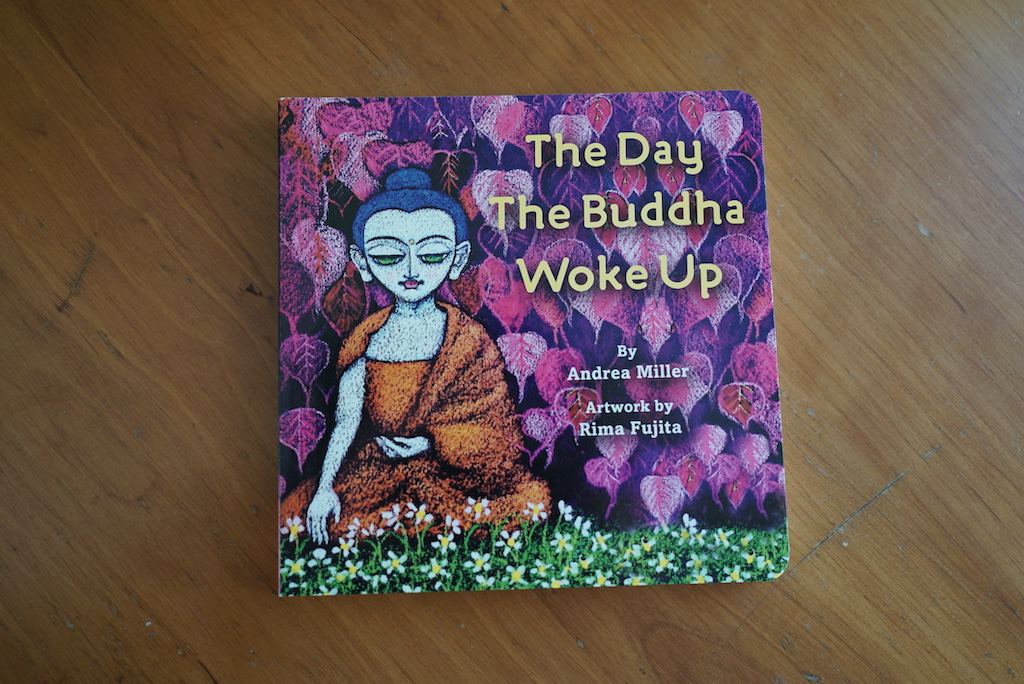I met Andrea Miller, deputy editor of Lion’s Roar magazine, in India, during the 6th International Buddhist Conclave. While we did exchange editorial ideas and matters that affected the future of Buddhism around the world, from politics to culture, we also talked about family: she is a mother while I had married just a couple of weeks before the conclave. In October, I learned that she was the author of a new and lovely children’s book centred on the Buddha’s life, specifically on the most important day of his life: the way he woke up.
The Day the Buddha Woke Up (published by Wisdom Publications) tells the story of the Buddha’s biography for a child’s eyes, condensing the archetypal stages of his life and deeds into pithy and meaningful sentences like: “He could have had anything he wanted. But what he wanted was not a thing.” The narrative takes the reader through Siddhartha Gautama’s journey, with the climax being his sitting beneath the Bodhi Tree. Enlightenment or Nirvana, of course, is not complex here. It is simply enjoying this moment without wishing it was a different moment (I am reminded of Thich Nhat Hanh’s advice that the present moment is all one needs for happiness).
I recognized the book’s art immediately: it was distinctly Rima Fujita’s, the Japanese painter who had also drawn the poster art for the documentary Saving Mes Aynak, among other amazing pieces that are focused on the vulnerable, the powerless, and the voiceless. Her work is no less stunning on this book’s pages. One trusts Fujita-sensei’s expert hand in treating the canonical material with respect, while also providing a lush and colourful landscape of the Buddha’s world – sumptuous robes and jewels, exotic animals, beautiful mountains and flowers, sagely seekers – that will enchant children and parents alike.
The Day the Buddha Woke Up is a short but memorable retelling that should delight children while possibly stimulating questions about the nature of happiness. I daresay such a bedtime story discussion on happiness might give parents or carers some pause for thought as well.

